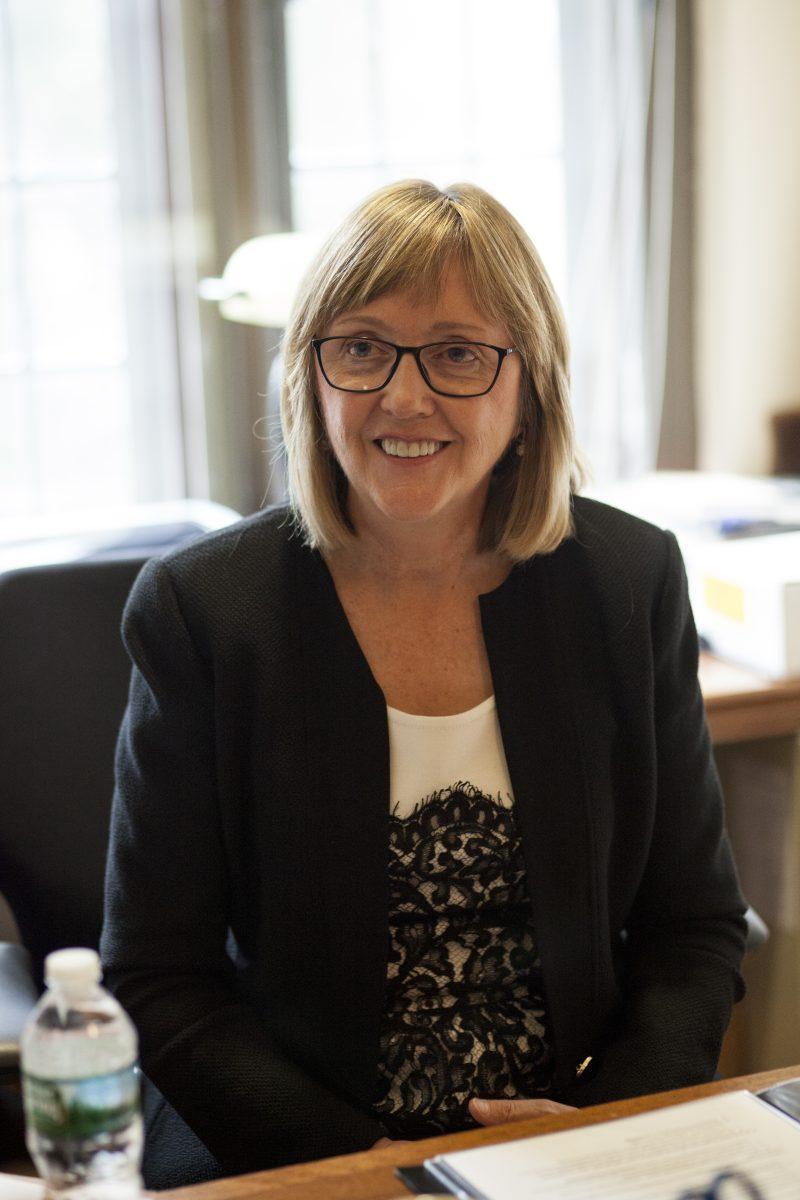The eleventh president of Smith College, Kathleen McCartney completed her undergraduate education at Tufts University and received her master’s and doctoral degrees in psychology from Yale University. She is the recipient of many distinguished accolades, including the Harvard College Women’s Professional Achievement Award and was also named one of the 30 most innovative people in Massachusetts.
[This interview has been edited for clarity and length].
Q: Given that you’ve been president of Smith for 3 years now, do you have any advice for Dr. Johnson?
A: President Johnson needs to first, get to know various constituencies, like the students, the staff, the alumnae, etc. So the first year is a big year to get acquainted. Learn the culture. Second, ask a lot of questions. Do a lot of listening. Don’t feel like you have a full vision for Wellesley crafted by the holiday season! Third, have fun. This is a relentless job in many ways, but it’s also a joyous one.
Q: How has being a woman changed from when you were a student to now?
A: It has changed so much. I have two daughters, and when I share some of my stories with them, it’s incredibly difficult for them to relate at all. When I was in high school and wanted to apply to colleges, my counselor had low expectations for me. I was also the editor of the newspaper and when I met with the advisor, they told me that they would never accept a woman in the newsroom. I sometimes say that sexism was explicit then, and now it’s implicit. We have a long way to go before women attain full equality with men.
Q: What is one significant challenge you, as a woman, had to overcome to get to where you are now?
A: I’m a first-generation college student, so I was at the intersection of class and gender. Fortunately, I had two strong, women role models to help me not internalize the negative messages that I received. Early in my career, there were only a dozen tenured women at the time, out of around 400 professors at Harvard. I had children while I was in graduate school and while I was an assistant professor, and I definitely received comments from my male colleagues that I wasn’t serious about my career. I did not receive a maternity leave at Harvard; this was 1985 and there were no parental leave policies.
Q: If you had to give one piece of advice to your college self, what would it be?
A: When I was in college, the fact that I came from a working-class background affected the way I thought. I took 3 engineering courses, and I remember one day thinking, “I really don’t like engineering”. My advisor convinced me that it wasn’t a failure to leave something behind that I didn’t like. Experiment more and try to figure out what excites you. Be experimental and bold.
Q: What do you believe is the importance of a women’s college?
A: I think that it’s a choice. It’s a powerful choice for some women, and not for others. One of the things I see is that when it’s a good fit, it’s powerful to study at an institution where almost always, leadership positions will be occupied by women. In class, every faculty member would have their focus on these women, and there would be less implicit bias as a function of gender or sex. From my experience talking to students, so many of them seem to find their voice and confidence.






